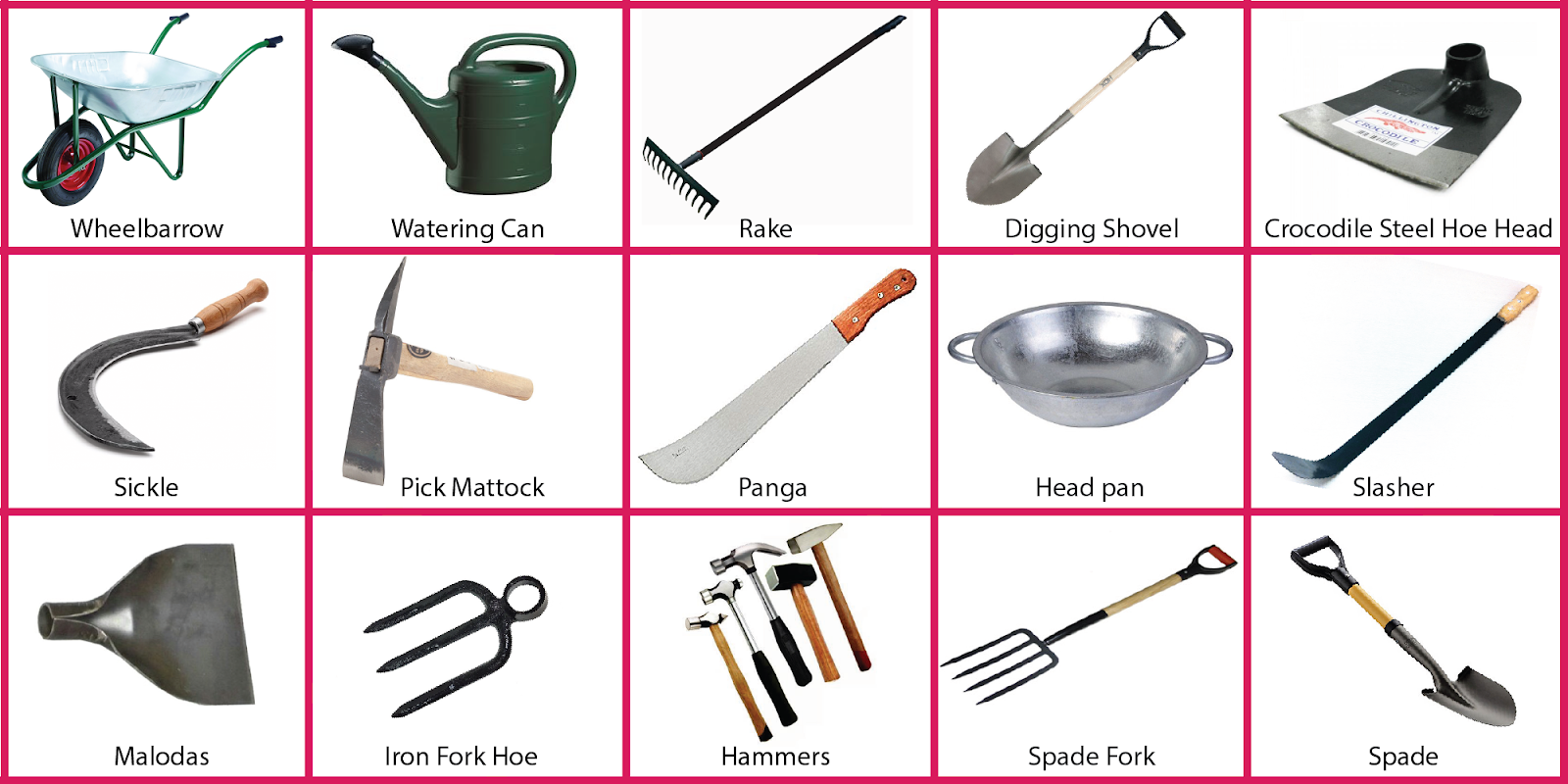Farming has been a fundamental part of human civilization for thousands of years, and the tools we use have evolved significantly over time. Understanding the various farming tools names is crucial for anyone looking to delve into agriculture, whether for hobby or profession. Each tool serves a specific purpose, enhancing efficiency and productivity in farming practices. As the demand for sustainable farming increases, so does the need for reliable and effective tools. Knowing the right tools can make a huge difference in crop yield and soil management. This article aims to provide a comprehensive list of vital farming tools along with their functions, helping both novice and experienced farmers alike.
In today’s modern agricultural landscape, farmers are constantly on the lookout for the best tools to simplify their work. From traditional hand tools to advanced machinery, the variety of farming tools names can be overwhelming. However, familiarizing oneself with these tools can lead to better decision-making when it comes to purchasing or utilizing them. In this article, we will break down the various tools into categories, ensuring that you have a clear understanding of what each tool does and when it's best to use them.
Whether you're planting seeds, cultivating soil, or harvesting crops, having the right tools at your disposal is essential. This article will explore the farming tools names you need to know, their uses, and tips for selecting the right ones for your farming needs. By the end, you’ll have a well-rounded understanding of the tools that can help you maximize your agricultural efforts.
What are the Basic Hand Tools Used in Farming?
Hand tools are the backbone of any farming operation, especially for small-scale farmers and gardeners. These tools are essential for tasks that require precision and care. Here are some of the most common hand farming tools names:
- Shovel: Used for digging, lifting, and moving bulk materials.
- Hoe: Ideal for breaking up soil, removing weeds, and shaping soil.
- Rake: Used for leveling soil and removing debris.
- Trowel: A small hand tool for digging in tight spaces.
- Pruning Shears: Essential for trimming and shaping plants.
Why are Power Tools Important in Modern Farming?
As farming becomes more mechanized, power tools play an essential role in improving efficiency and reducing labor. These tools often involve machinery powered by electricity, gasoline, or other fuels. Here are some common power farming tools names:
- Tractor: A versatile machine used for various farming tasks, from plowing to harvesting.
- Rototiller: Used for turning and aerating the soil, making it easier for plants to grow.
- Chainsaw: Essential for cutting down trees or large branches.
- Sprayer: Used for applying pesticides and fertilizers efficiently.
- Combine Harvester: A machine that streamlines the harvesting of crops like wheat and corn.
What Specialized Tools Do Farmers Use for Crop Management?
Specialized tools help farmers manage crops more effectively and efficiently. These tools are designed for specific tasks, ensuring that each step of the farming process is optimized. Some specialized farming tools names include:
- Seed Drill: Used for planting seeds at the correct depth and spacing.
- Soil Tester: Measures soil pH and nutrient levels to ensure optimum growing conditions.
- Crop Sprayer: Applies liquid fertilizers and pesticides to crops.
- Weed Cutter: Specifically designed to remove weeds without damaging crops.
How Do Farmers Choose the Right Tools for Their Needs?
Choosing the right farming tools can be a daunting task, especially with the myriad of options available. Farmers must consider several factors when selecting their tools:
- Size of the Farm: Larger farms may require more advanced machinery, while smaller farms can often manage with hand tools.
- Type of Crops: Different crops may require specialized tools for planting, maintenance, and harvesting.
- Budget: It's essential to balance quality with cost-effectiveness.
- Ease of Use: Tools should be user-friendly, especially for those who may be less experienced.
What are the Safety Measures Farmers Should Follow When Using Tools?
Safety is paramount when working with farming tools. Farmers should be aware of the following safety measures:
- Wear Protective Gear: Always use gloves, goggles, and sturdy footwear.
- Inspect Tools Regularly: Check for any signs of wear and tear before use.
- Follow Manufacturer Instructions: Make sure to read and understand the operation manual for power tools.
- Be Aware of Surroundings: Always be mindful of your environment, especially when using large machinery.
Can Technology Enhance the Use of Farming Tools?
In recent years, technology has begun to play a significant role in the agricultural sector. Here’s how technology enhances farming tools:
- Precision Farming: Technologies like GPS and drones help farmers monitor crop health and optimize resources.
- Smart Irrigation Systems: Automated systems ensure that crops receive the necessary water without waste.
- Data Analytics: Farmers can analyze data collected by various tools to make informed decisions.
What Future Trends Can We Expect in Farming Tools?
The future of farming tools is likely to be shaped by several trends:
- Sustainability: Tools that promote eco-friendly practices will become more prevalent.
- Automation: As labor shortages continue, automated tools and machinery will be in higher demand.
- Smart Farming: Integration of IoT devices will allow for more connected and efficient farming practices.
In conclusion, understanding farming tools names and their applications is essential for anyone involved in agriculture. From basic hand tools to advanced machinery, each tool has its own unique function that contributes to the overall farming process. By familiarizing yourself with these tools and their uses, you can enhance your farming experience and yield better results. Remember to prioritize safety and consider the latest trends to ensure you are using the best practices in your agricultural endeavors.



